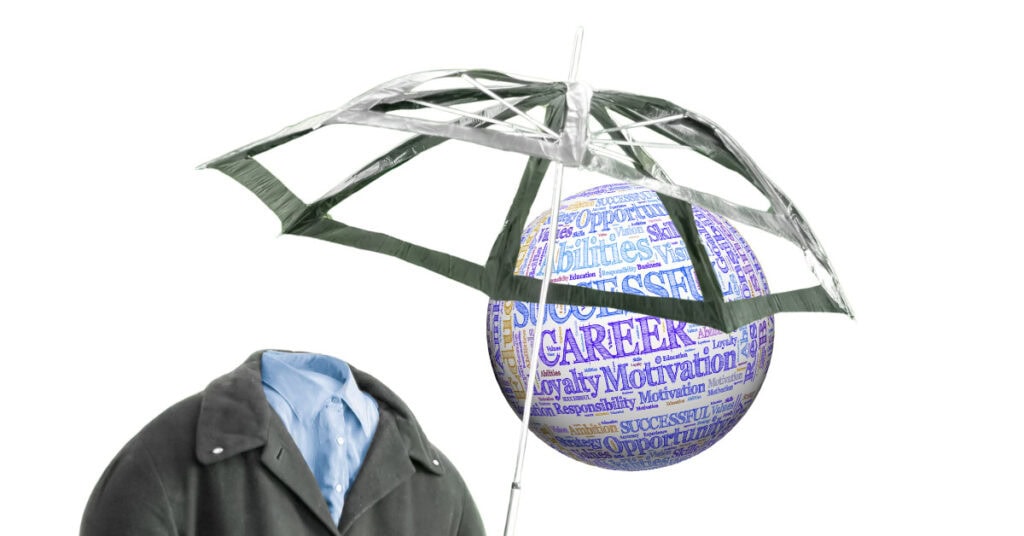Should you drop value and shrink your resume to 1 page?
Just saw a tweet from one of my talented clients:
Just got a call from an agency that said a 2 page #resume was way too long. it should be 1 page…very Frustrated!
Shrink or not shrink your resume to 1 page?
I read her resume again to see if I could see shrinking it. The general advice is that when someone requests a specific type of resume, go ahead and offer it. I told her she could comply with this one request but not make it a standard. There are times when a recruiter or hiring manager has a formula they use to send to their corporate clients. If that is the case, I, like many of my colleagues recommend following directions.
However, 99% of the resumes I create are 2 or more page resumes. I often create 3-page resumes for high-level executives. I create 2 page resumes for new graduates or even students still in college.
Let’s just examine the case though:
While with her last company, she worked for 5 years before the company went out of business.
Clearly, her former employer valued her skills enough to continually promote her. We used a Selected Accomplishment section:
- Decreased office and operations expenditures by 15% through implementing controls for stock and supplies, standardizing ordering procedures, delivering initial cost-savings of $50,000 and more cost savings in later years.
- Built effective relationships with multiple shipping companies, such as FedEx, UPS, SmartPost, USPS, and Brokers, learning shipping rules and restrictions and strategies to select the most cost-effective option for each customer, reducing shipping costs by $100,000 to $150,000.
There’s much more in the resume but each element tells her story and provides value. I agree with those who feel that a resume should not be packed with fluff to make it expand to two pages.
If you shrink your resume, you leave out your story
Three more stories from successful clients:
- Strategic Planning – Formulated strategic response proposal detailing material impervious to caustic chemicals, resulting in positive TUV and FDA inspection reports and supplied green light to resume sales of implanted medical devices as well as accolades from top management.
- Technology Optimization – Executed migration of SAP ERP system landscape from IBM data center to Amazon Cloud Services, delivering $1.7M in annual cost savings for infrastructure hosting.
- Value Chain Analysis | Process Documentation & Mapping – Designed and completed extensive analysis work on global Income Tax and Transfer Pricing (TP) processes for identification and implementation of re-engineering opportunities.
But if you dig deep to share the resume stories where you made a difference by decreasing costs, increasing sales, improving processes, or winning over the competition, it all adds value to the resume.
However, I struggle with why hiring managers would not want to make sure they have the right candidate. If they will invest salary dollars, training dollars, and all the additional compensation required to complete the hiring process, isn’t it worth it to spend a little time reading? No one wants to keep looking for the right employee.
Too many resumes to read?
I also understand recruiters who read 200 resumes a day or more struggle with the volume.
I had another client is a military transition to civilian life. I read him another dialog I had on Facebook with several recruiters who were adamant no student should ever have a 2-page resume. He had been a military recruiter who evaluated candidates all the time. His response was:
“Too bad, you can’t find the right candidate if you don’t have the right information! 200 resumes a day is not a big deal if you compare the cost of hiring the wrong person.”
What do you think?
Do you think the volume of candidates means you have to trim down the resume of a qualified person to 1 page?
Or do you think just maybe two pages to showcase accomplishments and make the choice clear is worth a little extra reading? As your partner in job search, I help you market your best self while answering tough questions in our interactive sessions. Learn more here.
12 Comments
Resume Design and Job Seeking Tips
Here are Design Resumes' latest articles on job search, resume design, resume writing, and Linkedin optimization articles I've written.
Julie Walraven
Professional Resume Writer
Here are ways I can help you land your dream job.
You may be halfway across the country or the world. When you work with me, we share coffee, laughs, and concerns. This turns the scary job search into creative, consultative writing and learning sessions.






Great post, Julie. Personally, I think if everyone could fit their resume into one page, they would do it. If one has had a long work history, I do not see how it is possible to fit all relevant information into one page. Possibly the companies who require a one-pager are wanting a snapshot/profile to start with, and then a more complete 2-page resume further on in the process?
Yes, that would be an option and it is the one I suggest but you have to be very concise and precise to get the emphasis on the right value-driven aspects.
I’m both a hiring manager and a career coach. As a hiring manager, I am happy to read two pages if that represents a candidate best. And as a career coach, I never expect an experienced professional or executive level job seeker to shrink their accomplishments and history to one page. I know there are some total purists out there, though, who are obsessed with the “one page rule.”
Good points, Janet. For me, capturing the accomplishments is the hard part and many people don’t do that well enough at all no matter how many pages. I find that if you have a well-written resume and a goal-driven life either as a student or careerist, you need 2 pages to build interest.
Henway, I would say that the more important someone is, the easier it is to create a one page resume. Barack Obama just has to say, “President of the United States,” and “United States Senator” and he is pretty much done. But most executives don’t have such easily understood accomplishments and for them, I think a two page resume is fine, except for situations (like the one above) where the agency demanded a one page resume. This debate is as old as the hills, though, so I doubt it will be resolved any time soon (or ever).
Thanks for jumping in there, Janet. I agree with you. Please come back to visit again!
Julie,
I haven’t been able to fit my resume in one page since I left high school. I wouldn’t expect any quality candidate with solid working experience to do it either. However, I’ve seen a lot of resumes (or CVs as they call it here in India) who just stretch it to make it longer — that’s a big No from my side. What I do (since I haven’t carried my resume around for years now) is to refer folks to my LinkedIn profile, it gives you the best comprehensive picture along with recommendations etc.
Thanks for stopping by! I totally agree, stretching is bad but I believe that so many people say nothing on their resumes. Nothing is much worse. Or cramming it to make it fit.
LinkedIn is a great preview point and I strongly recommend everyone has an optimized LI profile, but we are still at a stage when employers still require resumes as the discovery point in the hiring process. You want to have a multi-armed job search and also a multi-armed career management plan.
You don’t need to carry your resume around, but you should have a current one available in case someone offers you the perfect opportunity. Please come by again!
Hi Julie,
I’ve never hesitated to read a one or two-page resume in my recruiting practice. Any more than that…highly unlikely!
However, I agree with your counsel, if a recruiter asks you for a shorter resume, give them a shorter resume. Ask them what they would eliminate and cut it out. They likely know what about your experience and accomplishments their client will value most.
Cheers,
Donna
I’ve been on both sides of the fence: I’ve been engaged in both job interviewing as well as job searching. [More recently, I’ve been searching!] For work that I once did (managing programs in international humanitarian assistance), I would prefer to know and see slightly more information up front, rather than less. A 1-page resume, if interesting, would most likely trigger a request for more information about a candidate, from my office. As for myself (as job seeker), I keep on hand 2-,3-, and 4-page versions of my resume. Additionally, I also now have an 11-page curriculum vitae or “CV,” which I keep on hand for special applications, like those for academic or research positions.
I have a 2-page resume. It’s led to interviews. It’s successful.
But until I came across some job ads that require 1-pagers, and then scouring the web for keywords to come across 1-page examples; I’m now led to believe if I can challenge myself to turn my 2-pager into a 1-pager that will be a great exercise to hone my skills and passions into a simple read that should suffice anyone’s curiosity about who I am and what I possess.
I think that you should always follow directions, Ari. So if you have a job ad that asks for a one page resume, you should do so. And the exercise of creating an effective one page would be a good one.
However, I think keeping both on hand and strategically using the one that best meets the situation is a good idea. If you resume is getting interviews, it is a sign that it is effective. The challenge in this economy is to turn the interview into an offer.
When a client tells me they are getting interviews but not offers, then I, like many of my colleagues, suggest that we examine any stumbling block questions or issues that may be getting in the way of the offer.